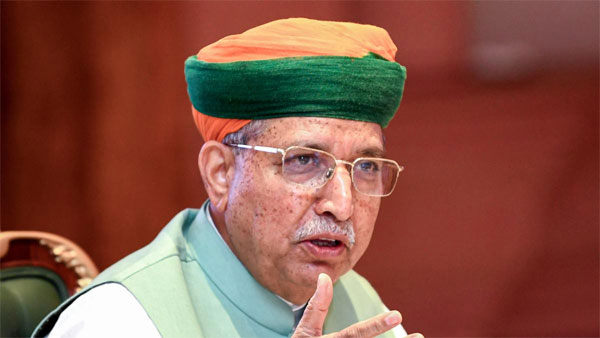
Law Minister Advocates for Institutional Arbitration
On June 14, 2025, Law Minister Arjun Ram Meghwal addressed a conference on ‘Institutional Arbitration: An Effective Framework for Dispute Resolution’ at Bharat Mandapam, New Delhi. He emphasized the importance of developing a robust alternative dispute resolution (ADR) ecosystem to alleviate the burden on Indian courts and enhance economic confidence. Meghwal highlighted that institutional arbitration offers a structured, transparent, and efficient mechanism for resolving disputes, which is crucial for fostering a conducive business environment in India.
Legislative Reforms to Strengthen Arbitration
The Indian government has implemented several legislative reforms to bolster institutional arbitration. The Arbitration and Conciliation (Amendment) Act, 2015, introduced provisions for expeditious and time-bound arbitral proceedings, aiming to reduce delays and enhance the efficiency of arbitration processes. Subsequent amendments in 2019 and 2021 further strengthened the framework by promoting institutional arbitration and reducing the prevalence of ad-hoc arbitration. Additionally, the establishment of the India International Arbitration Centre (IIAC) in 2019 marked a significant step towards creating a world-class institution for conducting arbitration proceedings. The Mediation Act, 2023, also laid down a legislative framework for mediation, promoting amicable settlement of disputes outside the courtroom.
India’s Potential as an Arbitration Hub
Minister Meghwal expressed confidence in India’s potential to become a global hub for arbitration. He noted that currently, businesses often seek arbitration services in countries like Singapore and London. However, with India’s growing infrastructure, legal reforms, and a pool of skilled professionals, there is no reason why arbitration cannot be effectively conducted within the country. He emphasized the need for continuous improvement in legal frameworks and the development of specialized talent to make India an attractive destination for arbitration.
Challenges and the Path Forward
While the government’s initiatives are commendable, experts suggest that India’s aspiration to become a global arbitration hub faces certain challenges. One of the primary concerns is the need for specialized talent in the field of arbitration. The proposed establishment of appellate tribunals dedicated to arbitration is a step in the right direction; however, their effectiveness will depend on the appointment of qualified professionals with expertise in arbitration law and practice. Additionally, there is a need for greater awareness and training programs to develop a pool of skilled arbitrators and legal professionals.
Global Collaborations and International Recognition
India’s efforts to enhance its arbitration framework are also reflected in its international collaborations. At the Riyadh International Disputes Week 2025, Minister Meghwal highlighted the growing legal synergy between India and Saudi Arabia, aiming to create an Indo-Saudi arbitration corridor. This initiative seeks to establish a legal framework tailored for the Global South, ensuring that businesses in both nations can resolve disputes efficiently without resorting to arbitration centres in other countries. Such collaborations not only enhance India’s standing in the global arbitration landscape but also promote cross-border trade and investment.
Conclusion
India’s ambition to become a global arbitration hub is supported by significant legislative reforms, the establishment of dedicated institutions, and international collaborations. However, achieving this status requires addressing challenges related to specialized talent and continuous development of the arbitration ecosystem. With sustained efforts and strategic initiatives, India is poised to enhance its position as a leading destination for arbitration, offering efficient, transparent, and cost-effective dispute resolution services to businesses worldwide.




































Leave a Reply